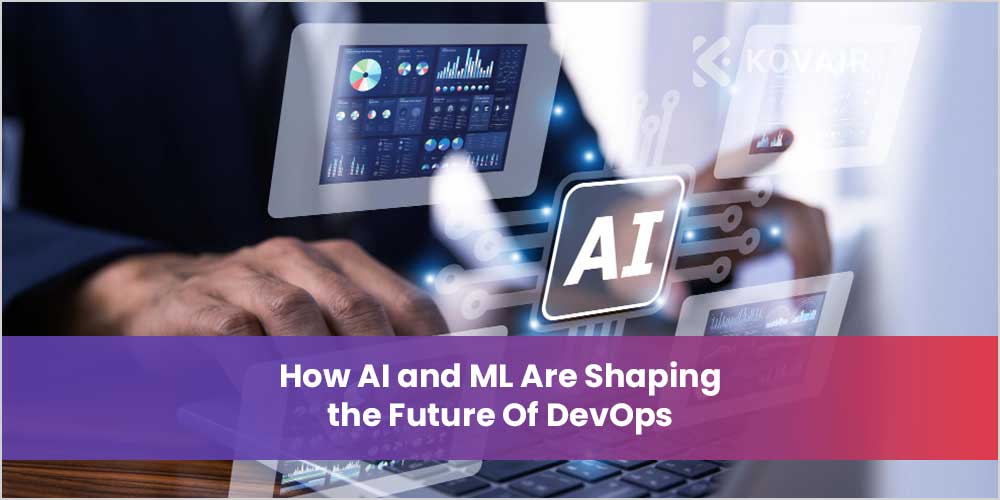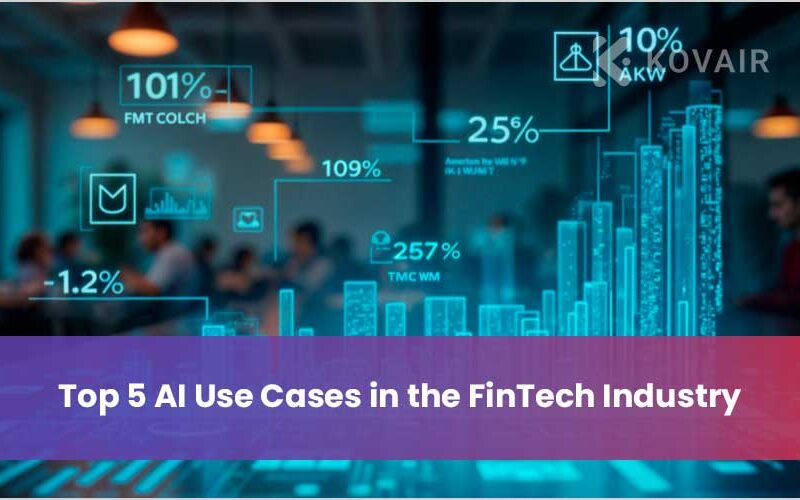
Introduction
DevOps has completely changed the way we code, test, and release software. It’s not just coding anymore. It’s moving quickly, working together, and delivering value to people quicker than ever.
Today’s tech teams work in high-pressure environments where updates happen daily or even several times a day. That pace brings new challenges. Systems are getting more complex. Data is growing like never before. And even the best DevOps practices sometimes fall short in catching every issue or scaling with demand.
These aren’t just trendy tech terms thrown around in meetings. AI and ML are already changing the way modern DevOps teams work. They help automate the boring stuff. They spot problems before humans even notice. And they learn from past incidents to improve future performance.
In this article, we’ll explore how AI and Machine Learning are not just improving DevOps—they’re helping redefine it.
What is DevOps?
DevOps is not a tool or a job. It’s a mode of functioning in which the DevOps developer and operations teams collaborate to deliver software quickly with fewer defects.
The main goal?
Speed, stability, and happy users.
Key Practices and Tools
DevOps relies on a few core ideas and tools:
- CI/CD – Quickly test and release code.
- IaC – Manage servers and settings with code.
- Docker & Kubernetes – Run apps in containers.
- Jenkins, GitHub Actions – Automate builds and deployments.
- Prometheus, Grafana – Monitor systems in real-time.
These tools help teams work faster and smarter.
1. The Rise of AI and Machine Learning
Artificial Intelligence and Machine Learning are no longer just popular terms. They’re now used everywhere across industries.
- AI helps computers to do jobs that normally entail human thinking, like looking at information or making choices.
- Machine Learning (ML) allows systems to learn through experience and improve with time.
This growth did not happen overnight. With more cloud platforms, cheaper hardware, and more data than ever, AI and ML have become faster, smarter, and easier to use.
The global AI market by 2025 will reach over $300 billion, as reported by Statista. And that is still increasing.
Tech leaders like Google, Microsoft, and Amazon are pouring resources into AI for everything from smart search to automated DevOps tools.
Today, AI is everywhere:
- Voice assistants
- Fraud detection
- Self-driving cars
- And yes—DevOps too
Next, let’s explore how AI and ML are changing the way DevOps teams build, test, and deliver software.
2. How AI and ML Are Changing DevOps?
Smarter Processes
AI looks at lots of data—code, tests, logs—and finds problems before we do. It can catch flaky tests or predict crashes early.
Real AI Tools in Action
- Dynatrace spots issues and suggests fixes.
- Harness automates safe deployments.
- GitHub Copilot helps write code faster.
- Splunk makes troubleshooting easier.
These tools save time and reduce mistakes.
Why It Matters
AI helps DevOps teams stop problems before they start. That means fewer outages and smoother releases.
3. Automation and Efficiency
Let’s face it—nobody likes doing the same thing over and over. Testing every build. Deploying code manually. Checking logs.
AI excels at automating these repetitive tasks. For example, automated testing powered by ML can learn which areas of your app are most likely to break and focus test coverage there. You can also expand your talent pool by hiring AI-vetted remote developers for your team, ensuring they onboard skilled professionals who have been thoroughly assessed by AI tools to maintain high-quality standards.
Speed and Stability
A 2023 McKinsey study found that companies using AI in DevOps saw deployment frequency increase by up to 50%, with incident response times cut in half.
More frequent releases. Fewer late-night on-call emergencies. Sounds like a win, right?
Real-World Impact
Netflix is a great example. They use AI to monitor systems across their global network. If a server starts acting up, AI detects it instantly and reroutes traffic, often before users even notice.
That’s the kind of magic DevOps dreams are made of.
4. Predictive Analytics in Action
It’s exactly what it sounds like: using data to predict what’s going to happen next. Think weather forecasts—but for your app’s performance.
How AI Makes It Possible
By training models on logs, usage data, and system behavior, ML can forecast:
- When an app might crash,
- Where performance bottlenecks are likely to form,
- What time of day are your servers most at risk?
Applications You Can Use Today
Tools like Moogsoft and New Relic use predictive analytics to help teams stay ahead of trouble.
Instead of waiting for a user to report an issue, you’ll already be fixing it.
5. Boosting DevSecOps with AI
In DevOps, speed matters. But speed without security is risky. That’s why many teams now follow DevSecOps—baking security into every step of the development pipeline.
Where AI Comes In
AI helps by:
- Scanning code for known vulnerabilities (using tools like Snyk or Checkmarx),
- Monitoring real-time activity for signs of attacks,
- Detecting unusual login patterns that could mean a breach.
Proof in Action
Google’s Chronicle security platform uses AI to analyze petabytes of logs to detect threats across its cloud services. That kind of scale would be impossible with manual review alone.
6. The Roadblocks
Common Hurdles
AI isn’t plug-and-play. Teams face real challenges, such as:
- Lack of AI/ML skills,
- Dirty or incomplete data,
- High upfront costs.
And let’s not forget the trust factor. If an AI tells you to roll back a deployment, are you confident enough to do it?
New Tech to Watch
Emerging technologies like Edge AI and Explainable AI are starting to impact DevOps. Edge AI brings intelligence closer to the devices (great for IoT). Explainable AI helps teams trust and understand AI decisions.
The Changing Role of DevOps Pros
AI won’t replace DevOps engineers—but it will change what they do.
Less time on routine tasks. More time designing intelligent systems. And a stronger need for cross-skills like data analysis and AI ethics.
Conclusion
AI and Machine Learning are no longer just buzzwords in the world of DevOps—they are becoming essential tools for building faster, smarter, and more reliable software delivery pipelines. By automating repetitive tasks, predicting issues before they happen, and optimizing resource usage, AI/ML technologies are helping DevOps teams move from reactive to proactive operations.
As these technologies continue to evolve, they will redefine how we manage infrastructure, deploy code, and ensure application performance. Embracing AI and ML in your DevOps strategy today isn’t just about staying ahead—it’s about laying the foundation for a more agile, intelligent, and scalable future. The earlier teams adopt these tools, the more competitive and resilient they’ll be in the fast-moving world of software development.



